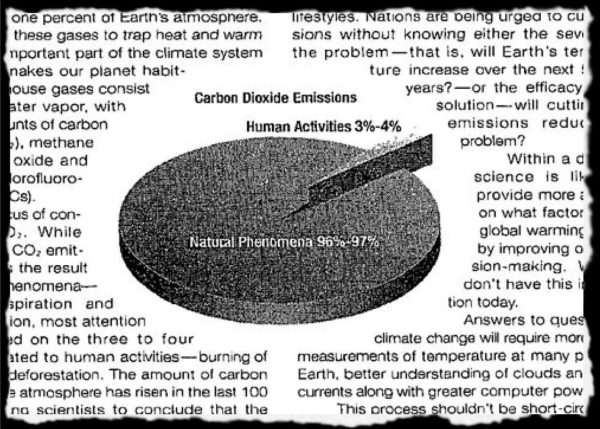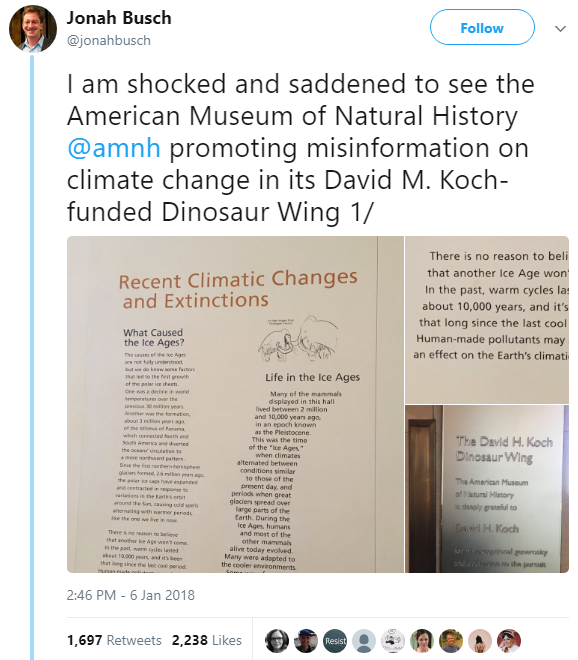 A recent slightly dodgy RC post from Stephan triggered my knee-jerk. It is about knocking back, yet again, the stupid denialist idea that the recent CO2 rise could possibly be natural. That's all fine, of course, anyone discussing GW with those not really capable of thought comes across this idea; I can find myself mentioning it back in 2005, and I'm sure I did so earlier too.
A recent slightly dodgy RC post from Stephan triggered my knee-jerk. It is about knocking back, yet again, the stupid denialist idea that the recent CO2 rise could possibly be natural. That's all fine, of course, anyone discussing GW with those not really capable of thought comes across this idea; I can find myself mentioning it back in 2005, and I'm sure I did so earlier too.No, the dodgy bit is "How Exxon misled the public against better knowledge: One fascinating question is where this false idea of humans just contributing a tiny bit to the relentless rise in atmospheric CO2 has come from? Have a look at this advertorial (a paid-for editorial) by ExxonMobil in the New York Times from 1997...".
As Stephan says, of the advertorial, "That is pretty clever and could hardly be an accident. The impression is given that..." but the same can be said of his post "That is pretty clever and could hardly be an accident. The impression is given that Exxon originated this idea; but no evidence is presented." Stephan is a good scientist and knows the difference between showing X said a thing and showing that X originated a thing.
Aanyway, the point is: I had a look back and can't now from this distance find where the idea comes from. It was certainly common stupid currency in the Usenet days. I probably saw it before 1997, but don't actually know.
Ah. If I look back to What I said about Exxon I can find Lee Raymond talking drivel, in 1997. As I said then "We've had this before on sci.environment. Steve Hales should certainly know better than to post rubbish like this. Raymond may not know better, but he should have enough expensive advisors who should be able to tell him better. I can only conclude that he (Raymond) is deliberately trying to mislead."
Refs
* Yet more Exxon drivel
* The Weekend Wonk: Growing Legal Wolfpack Hunting Oil Industry on Climate, Corruption
* RS suggests a dry ice palace
* So, this equality of wages lark then - Timmy
* NICK COHEN PROVES HAYEK'S "ROAD TO SERFDOM" CORRECT - Timmy


